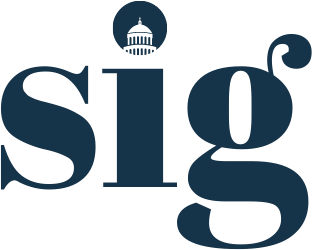By Claire Zabel, BS ’14, MS ’15
During the summer of 2013, I worked at the California Governor’s Office of Planning and Research (OPR) through a SIG Fellowship made possible by The Edwin L. Z’Berg Fellowship in California State Conservation and Environmental Issues Fund. It was the most valuable professional experience I have had.
The OPR advises the governor of California, and gives guidance to city and county governments about environmental and land use problems in the state. During my fellowship, I worked on a variety of projects, including writing memos recommending that Governor Brown veto, or not veto, new legislation; summarizing recent research for new local government guidelines; and arranging conferences. However, the most valuable components of my SIG internship were the relationships I formed with the OPR staff.
Members of the OPR team come from diverse educational backgrounds, and are united by curiosity and commitment to make innovative, evidence-based recommendations on environmental policy. Their thoughtfulness encouraged and, at first, surprised me. It showed me that there really are still places in government for people who care more about the public good than self-advancement. And over the course of the summer, I decided I wanted to join them.
Fortunately, my experience with the OPR extended beyond my internship. In November, my boss and mentor, Senior Planner Michael McCormick, presented me with an amazing opportunity: he offered me a place on the team representing California at the United Nations’ (UN) annual Framework Convention on Climate Change, the 19th Conference of the Parties, in Warsaw, Poland. With the support from SIG’s Halleck Fund and the Earth Systems Department, I was able to attend.
The California team arrived in Poland jetlagged, cold, and excited to begin. After entering the National Stadium, we saw hundreds of representatives and negotiators from almost every country in the world. It was a tense, energetic scene. Everyone had an agenda and a set of preferred talking points and subjects to avoid, and spoke carefully in front of the cameras. Heads of state passed through, calling for progress.
We negotiated with members of the U.S. Department of State and Council on Environmental Quality and networked with representatives from other countries and regions. During this experience—an opportunity I would never have had without my SIG fellowship—I could see both the inherent obstacles, and the progress people have made to help solve environmental problems.
Through my internship with the OPR and experience at the UN convention, I came to understand the power of a thoughtful, passionate team working together. I saw some of the serious barriers to progress on international climate policy. Moreover, my experience showed me how even a student like me could communicate a vision that mattered. This understanding prompted me to change my senior and co-terminal master’s degree course plan to include journalism, negotiation, and public speaking classes because, through my SIG experience, I realized I needed to build those vital communication skills.
I can say without hyperbole that, by showing me how I could learn to make the positive impact I have always dreamed of making, SIG changed my life.

